If you want to create a direct relationship with a washing station or producer in Africa, you should consider Rwanda.
“The country is so organised,” said Clay Parker of Rwanda Trading Company (RTC), “there is so much you can do if you want to work directly.”
The organisation of the coffee sector in recent years is impressive. In 2009 specialty coffee (SCA graded 80+) was only 18.2% of all Arabica exports, in 2018 it was an estimated 64%. Despite this dramatic growth, Rwandan specialty coffees still struggle to find a market. Clay said 25 – 30% of the country’s coffee scores over 85 points, yet only 15% receives a quality premium. “There is so much coffee being sold for less than its value,” he said.
One of the reasons Nordic Approach was founded was to counter this common problem — too many great coffees are sold for less than they are worth. This, plus the great flavour profile of Rwandans, is why we continue to buy Rwandan coffee.
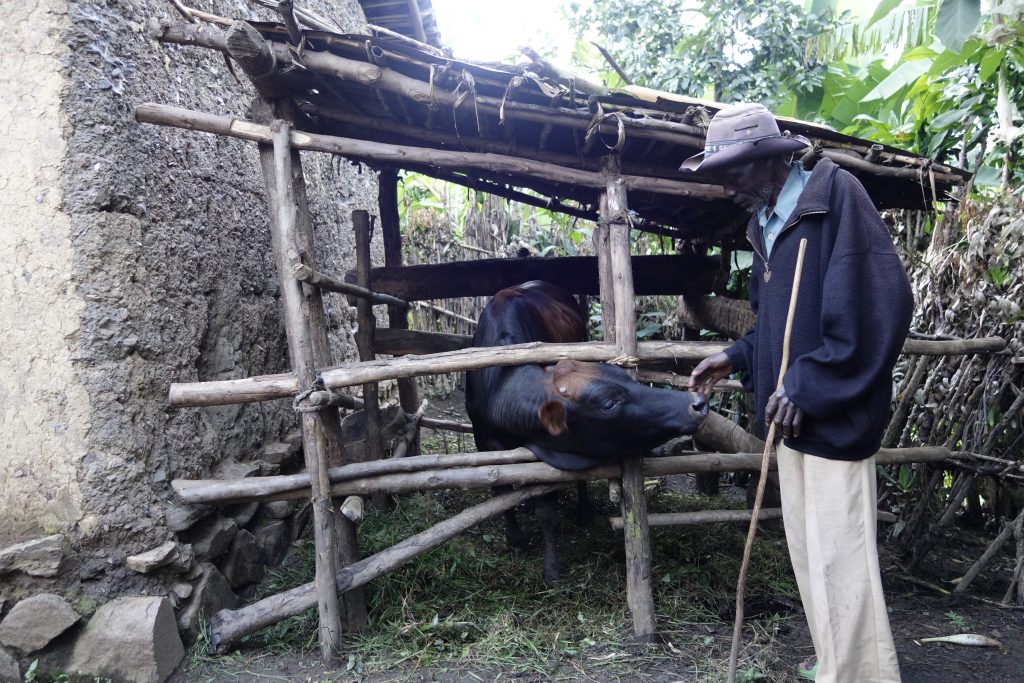
Rwandan smallholder coffee with the cow he received through an RTC programme. The cow provides additional nutrition and an another source of income to coffee farmers.
Rwandan flavour profile
Our Rwandan coffees taste completely different from almost anything else from East Africa. They are somehow between the very intense Kenyans and Ethiopians and South/Central Americans: bright, complex and fruit driven, yet very balanced and rich. Typically they boast flavours of red berries, currants, red grapes, stone fruit and citrus. Our clients use these coffees both as espressos and filters.
As Clay said of Rwandan quality, “when it’s good, it’s one of the best in the world.”
Rwandan infrastructure and organisation
This year marks 25 years since the Rwandan genocide. People who fled during this period have been returning in recent years, many of whom left when they were children. They bring with them international tastes and expectations of service.
Kigali, the country’s capital, is a well organised and green city. As part of a program to convert industrial zones to green spaces, Kigali city purchased and repurposed old coffee mills outside the city and offered them to exporters. RTC moved into one of these state-of-the-art mills with a very large capacity, something they hope to grow into.
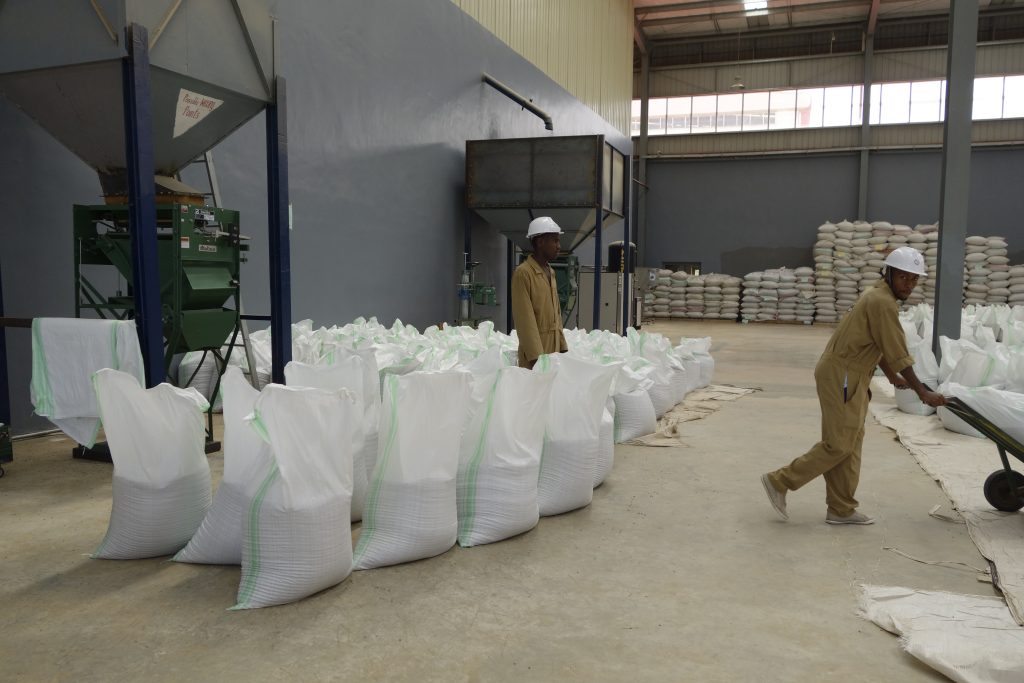
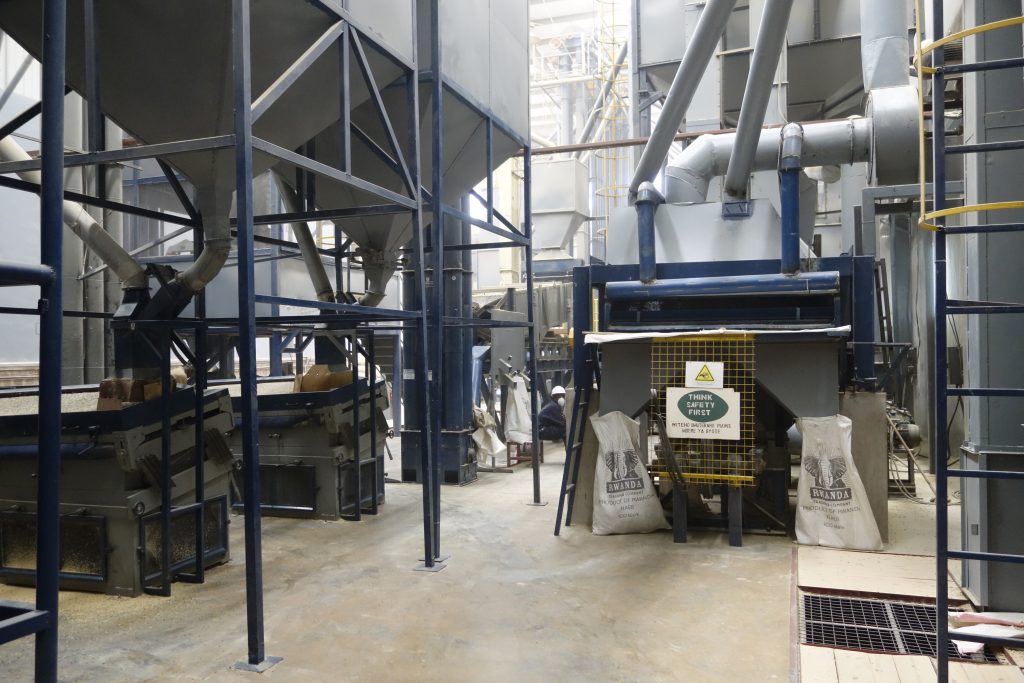
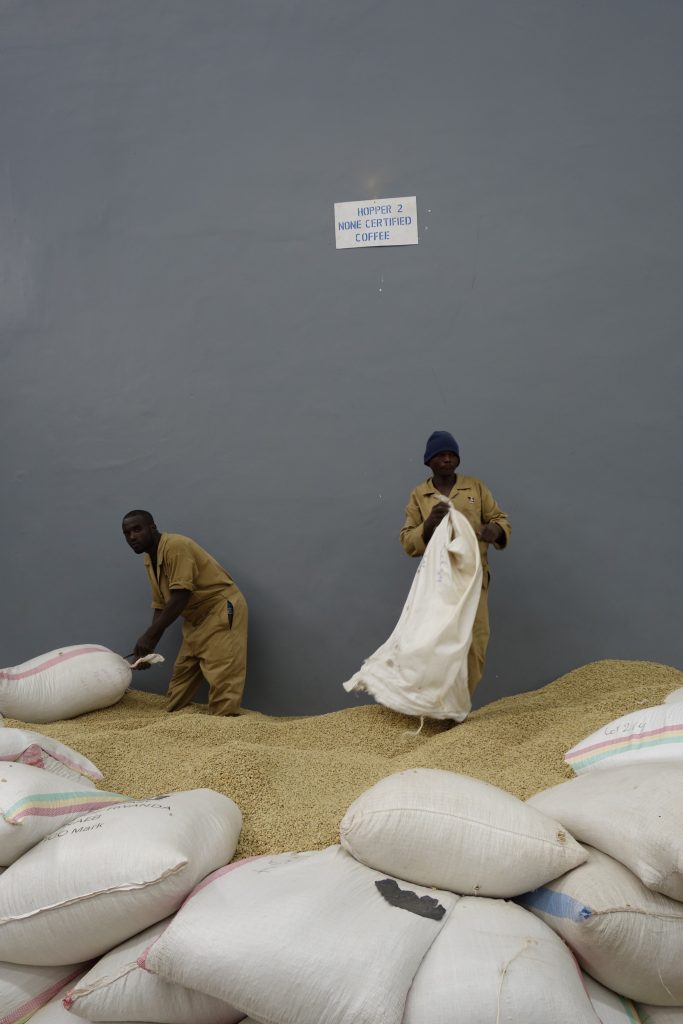
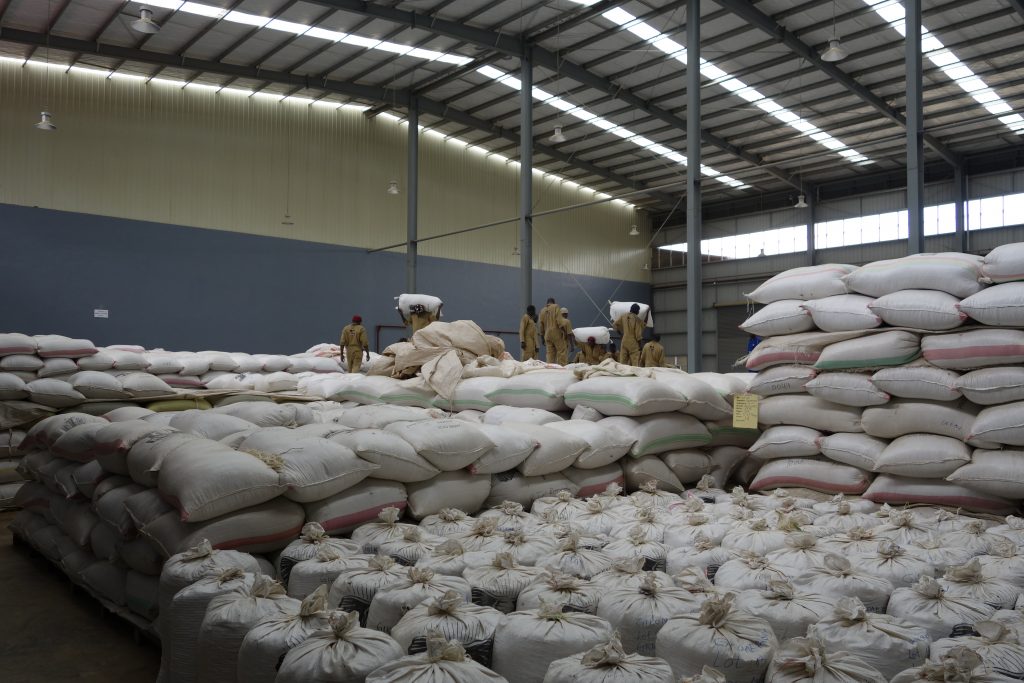
RTC’s state-of-the-art dry mill outside Kingali
Worried about potato?
RTC log every coffee cupped to track the potato defect, among other things. Their records show that the potato defect is currently found in less than 1% of Rwandan specialty coffees. This is due to a number of factors, one of them is better pesticide coverage, which continues to grow. It is also due to the recent legalisation of floating.
It might seem strange that the government would outlaw floating, the practice of putting cherries in water so the defective cherries can float to the surface and be removed. It is considered an essential step in processing specialty coffee. However this strange rule makes sense if you understand that the government were trying to protect farmers from unscrupulous washing stations and exporters (assuming they exist) who use floating to separate quality from poor quality, and therefore buy fewer cherries from the farmer. Now that the government understand the necessity of floating and allow the practice, many cherries affected by the potato defect are removed before processing.
Potential for special preps
Washed coffees dominate Rwandan exports, however RTC have been experimenting for three years at a Nyamasheke washing station with naturals and honeys. They need a special government permit to export this coffee, and the small volumes they have produced sell quickly. While volumes are still small, it is the fastest growing segment of the specialty market, and something we can expect to see more of in future.
UK Sale
We have moved warehouses to Seabridge in Belgium, so we are clearing remaining coffees from our UK warehouse. We have current crop Rwandan coffees at extremely low prices. Samples are available, select a coffee below to order yours via Cropster Hub.
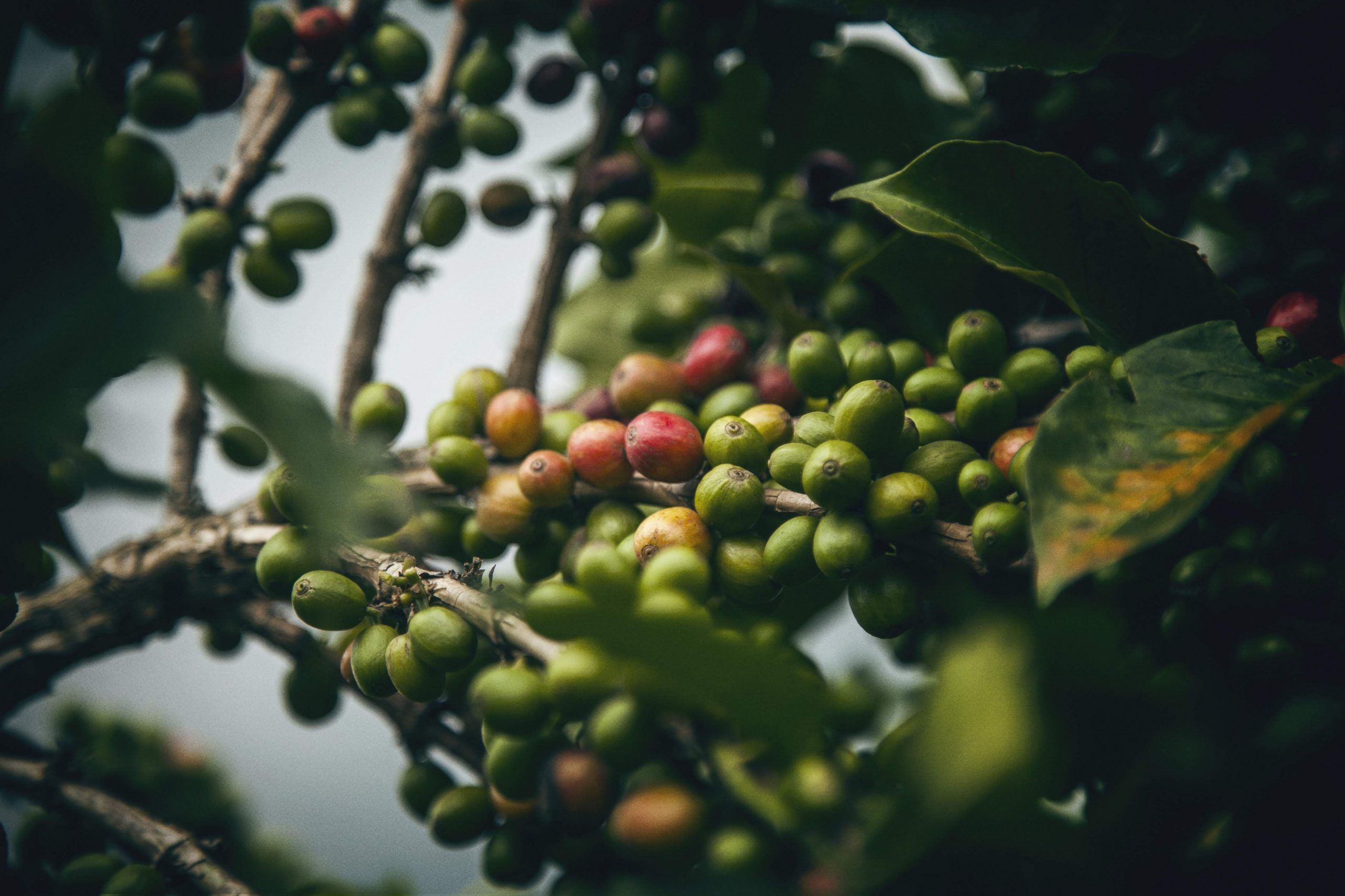
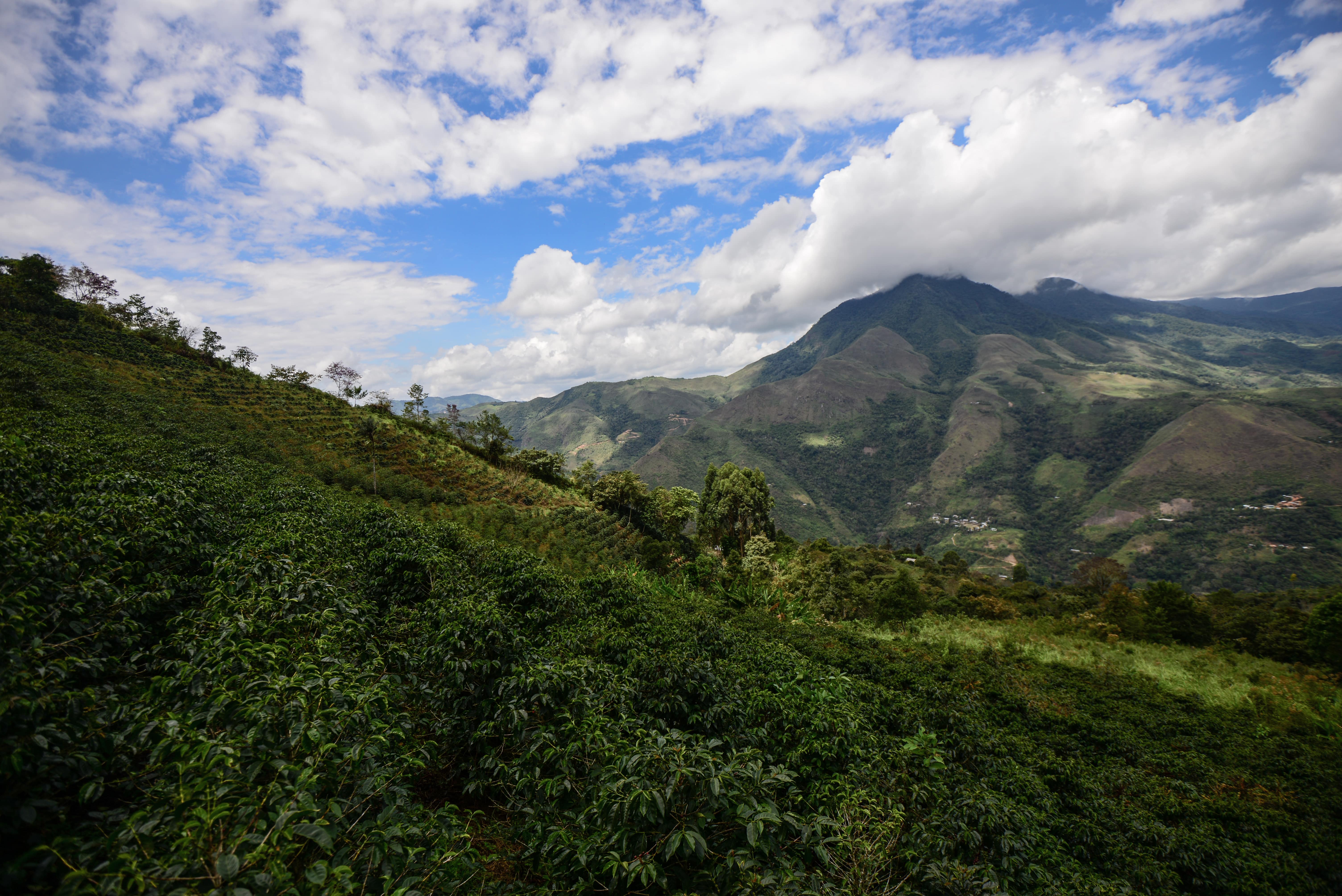

0 Comments